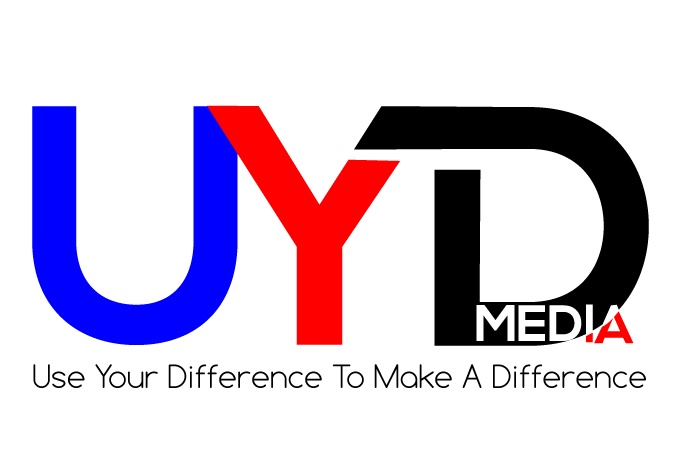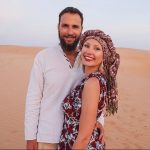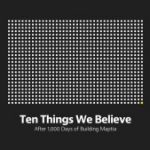Tell me a little bit about yourself and your passions?
I was born and raised in New York City to parents who had escaped with their parents from the Russian Communists during the Second World War. One of my grandfathers, a captain in the Latvian Army, was deported to Siberia, and my grandmother and his three children never saw him again. One of these three children is my mother who married my father, and subsequently I and my sister were born. I grew up in a bi-cultural environment. During the day, I was a normal American kid going to regular school, and in the evenings and weekends I was Latvian – going to scouts, singing in choir and folk dancing, attending church summer camp, and Latvian school. To add to this cultural upbringing, the Bronx, where I grew up, in the 60s and 70s, was incredibly diverse and inclusive. I cannot imagine a more innocent and enchanting place: where a kid was able to play street ball and ‘’tag’’ on the street; have mothers holler out of the apartment windows to come up for supper; to get cooled down in the summer from the fire hydrant; to pitch baseball cards in an alley or apartment building hallway when it rained; or to develop bonds of friendship with children from all nationalities, colors, creeds, and religions that last for life. This upbringing, and these experiences have left an indelible effect on my view of the world, in that I still ask myself, on occasion: ‘What am I going to do when I grow up? ’’ The answer to this, I have concluded, is to be passionate about the moment, to be ‘’here and now’’. Whether I am with my loved ones, running my company, teaching students, fundraising for foster families or scouting, climbing mountains, meditating, swimming, running, playing basketball, attending church services, having meetings, mentoring young people, or just reflecting, I try to be fully engaged in the moment. This is my passion, as is the opportunity to learn, grow, evolve, and to hence help others.
What intrigues you about experiential learning?
Experiential learning is the most natural way to learn, and I believe, the most effective. Scouting has the great catchphrase ‘’learning by doing’’. This is the educational basis for the largest, and I believe, the greatest youth leadership program in the world. Collaboration, teamwork, being a good citizen, and even building a fire requires practice, practice, practice. We have all heard the phrase from children: ‘’school is boring’’. Of course it is boring if one is measured on memorizing facts for a test, rather than using curiosity and imagination, to say writing a paper on popular culture and music by meeting and interviewing traditional blues musicians in New Orleans. Leave any small child with a some pieces of colored paper, crayons, and string and watch what happens – amazing things! Experiential learning helps people to re-engage with their curious nature and limitless imagination.
Walk me through your entrepreneurship journey.
My entrepreneurship journey began in the Bronx, when I was old enough, and my mother allowed me to walk a couple of blocks to the ‘’Candy Store”, or “Pop shop”, and I would purchase baseball cards, chewing gum, candy, and soda and sell it for a few cents more to the younger kids whose mothers would not yet allow them to go. Jumping some years ahead, and with this extensive childhood ‘’arbitrage’’ experience, I began a very successful career in the global company Motorola, where I worked in marketing, sales, and business development. The business development role was quite entrepreneurial. When the Berlin Wall came down, I asked to go to Eastern Europe and subsequently to focus on the Baltics (Latvia, Lithuania, and Estonia) to introduce Motorola’s products, systems, and services to the market. The Baltics were considered an ‘’emerging market’’ and this was a time when the politics, economies, and society, as a whole, was transitioning from a communist to a democratic/capitalist system. There was much uncertainty, but Motorola and myself were determined to help the new governments and their citizens acquire state-of-the art telecommunications that would improve the people’s quality of life. I think we were successful. Currently, together with a professor-friend of mine, Dr. James Bowen, we have launched a company called Experiential Simulations. Understanding that today’s young people are the interactive generation and their approach to learning is more technology-driven and experiential by nature, we developed this company to speak to them and their learning style. Experiential Simulations develops computer simulations, “serious games”, so to say, with a mission to make learning engaging, fun, and experiential. We are in the business to change the way the world learns. We, at Experiential Simulations, currently have an entrepreneurship simulation called “Traction” in the market, with ethics (called Ethos), information technology (called Agile), and project management (called Milestone) simulations to be launched very soon. The concept behind each simulation is that they challenge students to analyze available information and allow them to make critical decisions to solve a challenge.
If you could solve a world problem what would it be?
In my view, the biggest problem in the world is the lack of faith. When I say faith, I do not necessarily mean religion. I mean the internal emotion of hope for something that one cannot yet see. Whenever one works toward a worthy goal, one exercises faith. Faith is powerful and elicits positive action: one of the consequences of which is love. I don’t mean romantic love, but love for humankind and this world we inhabit. With faith and love we could end many sufferings – wars, famine, disease, poverty, and the like. One of my favorite songs is the Beatles’ ‘’All you need is love’’. ‘’There’s nothing you can do that can’t be done…all you need is love, love, love…’’ I believe these words ring true and each one of us has the capability and potential to have faith and to love. In Latvia, where I live now, the people still wear scars of 50 years of Soviet occupation. Although once the country became independent again, it was considered an economic success story, people still struggle with their values and bear the traces of a society that lived under great duress. What I imagine for our country is for our people to realize moving forward they can work with a clean slate to realize their full potential. Imagine if all of the billions on this planet had faith and loved one another? We would live on a different planet. Obviously this is not going to happen any time soon. Therefore we must first start with ourselves. It’s a slow, evolutionary process.
What advice would you give the youth out there looking to blaze their own path?
Listen to your heart, and do what your heart tells you to do. Do not necessarily do what others want, or what you think others expect of you. You are your own person, and you must find your own way. You have only one life, and you might as well make it one which brings you, and others, joy and happiness, and one of which you are proud of. Your heart will never steer you wrong. I promise. A caveat: finding your own way is not easy and will take a lot of soul-searching and reflection. Here, I would like to reference the three rules of mountaineering: “It’s always further than it looks. It’s always taller than it looks. And it’s always harder than it looks.’’ In other words, life is not a sprint, it’s a marathon, meaning it is step-by-step, sometimes falling, getting up, moving ahead, pondering, reflecting, believing. Having great people around you doesn’t hurt. Faith and love.
Now at UYD, we are always looking to find out different ways people use their difference to make a difference. How do you use your difference to make a difference?
My difference is that I am very much engaged in everything that I do and I am devoted to serving people (especially young people). Also, all of the activities that I am involved in are connected, complement, and build on one another, and carry a certain element of adventure. Of course, sometimes I do feel that I am not keeping up, but I try to focus on the things that I feel will have the biggest impact at the moment. Focus is very important. For example, I was recently elected as the Vice President of the Latvian Swimming Federation, whereby I see as a priority to work on solving the problem of high drowning rates in Latvia as well as to organize and prepare a national swim team for the 2016 Summer Olympic Games in Rio De Janeiro. As Vice-Chairman of the European Scout Foundation, I am focusing on ‘recruiting’ ‘Friends of Scouting’, individuals who provide financial resources to develop local scout groups, especially in Eastern Europe, where scouting was prohibited for 50 years during the Soviet occupation. I also fundraise and elicit corporate support for Latvian Foster Family Society. In all of my projects, I have wonderful people around me who share my passions, values and beliefs, and much is achieved through collaboration. I do spend a lot of time in planning and in reflective mode – what is important, what I can do better, what is the end goal that I want to achieve. I meditate every day. I write down things – lists, priorities – and even have a diary where every day I write down three good things that happened during the day.
Tell me about what culture is like in Latvia?
Latvia is a nation of music. If the United States is known for its jazz , I would say that for Latvia, folk songs (dainas), dating over a thousand years, are the strongest symbol of Latvian culture. These songs reflect the traditions, wisdom, beliefs, and values of ancient and tribal Latvians in the form of approximately 1.2 million texts and 30,000 melodies through symbols of nature, mysticism, and spirituality. Latvians love music, and are world-renowned for it. We have opera singers singing, conductors leading, and musicians playing in the major opera houses and symphonic orchestras of the world. The Latvian Song and Dance Festival is one of the largest amateur choral events in the world, held every five years, and with 30,000 performers – all together!
What’s a stereotype that isn’t true about your Latvia?
Latvia’s dear friends, and neighbors, the Estonians, tease Latvians as those who eat a lot of fish and as have six toes on each foot. That’s not true. Well the fish part may be true.
Where can we find out more about you and your latest project?
You can find out more about me in three different places: Experiential simulations , European Scout Foundation, and Latvian Foster Family Society.




